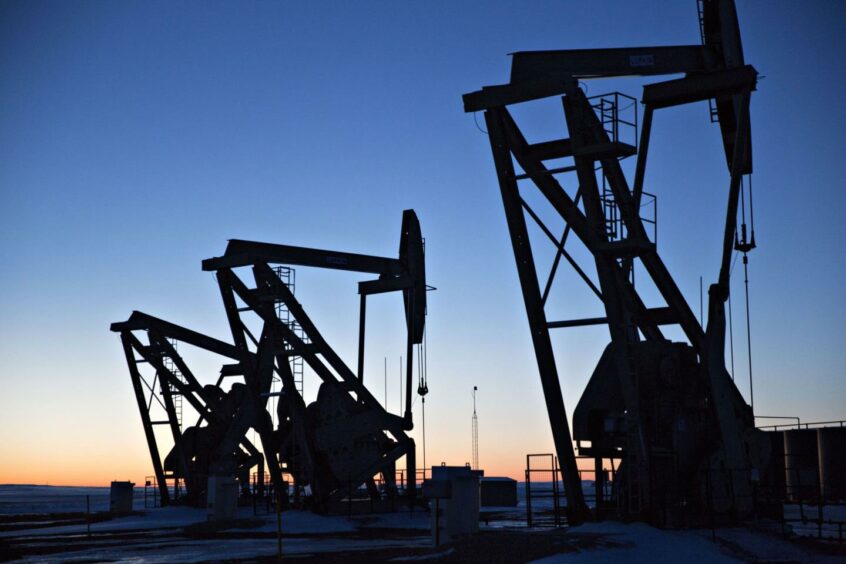
Oil stabilized after U.S. President Joe Biden unveiled sanctions against Russia that avoided the harshest penalties, while progress on the Iran nuclear talks offered to bring some relief to a tightening market.
Brent crude traded near $97 a barrel after a jump on Tuesday that saw it stop just 50 cents shy of $100 a barrel before paring gains. Biden announced sanctions targeting Russia’s sale of sovereign debt abroad and the country’s elites, responding to what he described as the start of an invasion of Ukraine.
The U.S. president said the penalties were a first step and will be increased if Russia “continues its aggression.” The measures stopped short of the devastating measures that the U.S. and its allies have threatened, which has led to a pause in oil’s blistering rally. OPEC+, meanwhile, continues to only drip-feed additional supply to the market, with several key members of the cartel saying they see no need to accelerate increases in output.
“There’s still considerable risk that oil prices may surge above $100 a barrel” if the situation in Ukraine escalates, Vivek Dhar, director of mining and energy commodities research at Commonwealth Bank of Australia, said in a note. “Oil markets are particularly vulnerable at the moment given that global oil stockpiles are at seven‑year lows and that OPEC+ spare capacity is being questioned due to disappointing OPEC+ supply growth.”
Prices
- West Texas Intermediate for April delivery added 2 cents to $91.93 a barrel by 7:25 a.m. London time.
- Brent for April rose 10 cents to $96.94 a barrel after closing 1.5% higher on Tuesday.
The White House measures come after Russian President Vladimir Putin earlier this week recognized two self-proclaimed separatist republics in eastern Ukraine as independent, a dramatic escalation in the standoff. A meeting between the top U.S. and Russian diplomats was canceled.
The U.S. is in discussions with oil exporters and importers to try to smooth any fallout from escalating hostilities and sanctions, Daleep Singh, Biden’s deputy national security advisor, said at the White House. The talks include tapping strategic oil reserves on top of the plan announced last year, he said.
The potential return of Iranian barrels also weighed on prices. European and Russian diplomats agreed negotiations over the country’s nuclear program have reached the endgame. A decision is likely this week over whether the agreement can be revived, according to statements by French, Russian and U.K. negotiators in Vienna.
Iran was one of OPEC’s biggest crude producers before it was sanctioned by the U.S. and many traders expect that if the curbs are lifted, it will be able to boost daily exports by about 1 million barrels within just a matter of months.
Still, markets remain severely backwardated, a bullish pattern that reflects tight supply. Brent’s prompt spread — the difference between its nearest two contracts — on Tuesday surged to the strongest in a decade as part of a broad strengthening of the global benchmark’s curve.
Recommended for you
